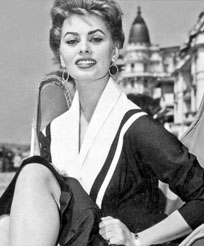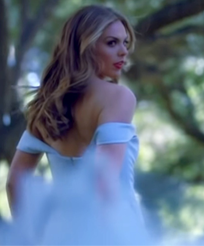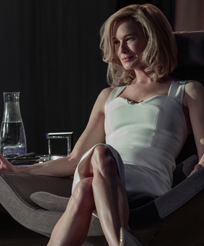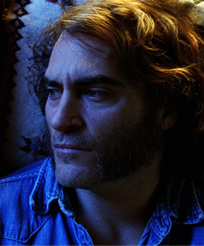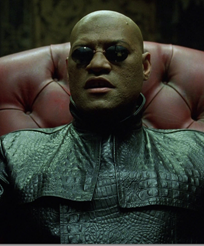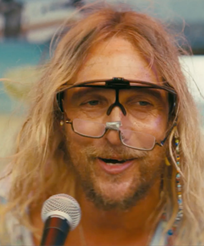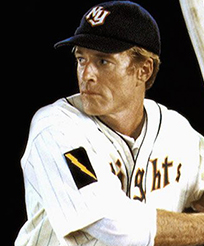This morning, MTV announced the launch of a new production arm, dubbed MTV Studios, and with it, a slate of initial offerings. Included in this lineup is a reboot of the droll, cult animated series, Daria; a reimagining of the sci-fi animated series Aeon Flux; a classic, Laguna Beach-esque docuseries about high schoolers in Nogales, Arizona; and, last but not least, a revival of the classic MTV reality series, The Real World. Why, many may ask, are they bringing this back? (And where, some may follow up, did it go in the first place?)
MTV offers some clues in their logline for the revival, which is uncharacteristically grandiloquent:
The show that invented modern reality television returns to its roots. This reconnection to innocence for the trailblazing series strips away the polarization and cold anonymity of social media, the din of the 24-hour news cycle, and the facades of the instafamous culture to find out what happens “when seven strangers are picked to live in a house…stop being polite and start getting real.”
That first sentence is the most critical: The Real World, it seems, will return to its winning original formula, without the frills and try-hard tactics of its most recent iterations. It could be a quietly radical decision.
In the ‘90s, through the early aughts, the general threshold for reality TV drama was much lower; we required less bombast, as an audience, than we do now, what with the glut of options, both on MTV itself and elsewhere. By the mid-2010s, it’s understandable why Bunim/Murray, the production company behind The Real World, would want to tweak their format; inundated with the verbal warfare and drunken theatrics of more craven reality TV properties, why would audiences tune into the comparably sedate conflicts of seven strangers, merely picked to live in a house? The Real World was novel at its peak because of its verisimilitude—because it could be considered “real.” But today’s audiences no longer care as much about whether something is “real.” They’re savvy enough to know reality TV is fake, or edited, or manipulated, so they might as well turn on the show that squeezes the most juice out of its eager cast of wannabe celebs. Ironically, the only way for The Real World to move forward was for it to become less real.
Ergo: Real World: Ex-Plosions, which premiered in 2014. The season started out the same way as seasons past: seven strangers; a super nice house; drinking, dancing, screaming, hooking up. But a few episodes in, the producers sent the cast on a vacation, and when they returned, they found that their exes had moved into the house. This was no longer The Real World, yet it wasn’t quite not The Real World, either. I remember enjoying it immensely when it aired, even if I was ultimately let down by the build up to the turn, which ratcheted up week after week and resulted in a climax that could never live up to my inflated expectations.
Then came Real World: Skeletons a year later, which operated on a similar premise: an adversarial someone from the cast members’ past showed up part of the way through the season, to wreak havoc on the house. There was an added layer of suspense, this time, given the cast members were aware of what had happened on Ex-Plosions. They knew something was going to happen, but they didn’t know what, or when. While I would never wish Skeletons didn’t exist—after all, it delivered us Tony, who exudes more pathos than any cast member on MTV’s The Challenge—it did feel like The Real World was getting away from itself. And yet there was a sense that, despite its growing artifice, the show was subtly attempting to approximate a new reality—one which, with the ubiquity of social media and our digital footprint, makes the past more difficult to escape. It reflected something increasingly true about modern relationships: that we can no longer avoid or forget people we want out of our lives as easily as we used to.
That all came to a grinding halt with Real World: Go Big or Go Home. Set in Las Vegas, it would periodically prompt its cast to complete this or that ridiculous challenge, lest they want to be sent home. This made the show more or less like The Challenge—a more successful franchise than The Real World at that point, perhaps because its format could better absorb necessary changes—but without the monetary stakes, the Survivor-esque politicking and the history between cast members. I stopped watching halfway through, and I admit, I could only bear to watch a few episodes of the show’s latest season, Real World: Bad Bloods, which had a formula similar to Skeletons. The franchise, one of my favorites ever, seemed to be dead.
Last year, I interviewed Johnny Bananas—an alumnus of The Real World: Key West and the de facto star of The Challenge—and asked him how he would fix The Real World. He said, plainly, that they should go back to “the format that worked.” This part of his answer is worth quoting at length:
People want to watch a show and they want to be entertained. That’s why I started watching The Real World. The first season I watched was Real World: Philadelphia. And the guys were going out hooking up and they were all partying and having a great time—it made me watch The Real World and go, like, this is something I would love to do. The past few seasons of The Real World, I’m like, this looks miserable. These people are beating the shit out of each other, they’re arguing with each other, nobody wants to hang out with anyone else in the house, nobody gets along. So they almost have to come up with all these gimmicks—the skeletons in the closet, the exes. You shouldn’t need that. They thought too hard about the characters. You let me cast [The Real World], it’ll be the best season ever.
What Bananas gets at here is the over-produced, over-manipulated, overwrought drama that has made the show unwatchable in its last few iterations. The reason the most successful reality TV shows of this ilk work is because the cast mates are, at the end of the day, friends. It’s why Bravo's Vanderpump Rules and Southern Charm are still on the air; it’s why MTV could bring back the Jersey Shore, with a sober Situation, a dieting Vinny and married-with-kids Jwow and Snooki, to surprisingly poignant results; and it’s why Floribama Shore, which is almost too dumb, even for me, got renewed for another season. In a culture as divided as ours is in 2018, it’s simply not realistic, much less entertaining, to put a Fox News-watching Republican in a house with an openly gay progressive (as Real World did, notably, before the Trump era, in Go Big or Go Home). And really, who would want to watch that, anyway? We get enough of it on our Twitter feeds.
It’s quite possible, however, that placing Trumpies with progressives in an ill-fated bid to bridge an unbridgeable divide is exactly what this new The Real World will do. I hope it resists the temptation.
“The Real World looks painfully outdated in 2018, as manufactured controversy amongst strangers is now a formula replicated everywhere on television,” Ann-Derrick Gaillot noted, in a brief post on MTV's announcement in The Outline.
But what if they didn’t manufacture controversy? What if, as it had in the past, they just put seven strangers in a house and let them be? What if, like Bananas suggested, they didn’t all fucking hate each other? What if The Real World was “real,” again?
At a time when it's de rigueur to explicitly stir up drama on much of reality TV—on shows like Are You the One?, Ex on the Beach and countless others—there would be something quietly radical about returning to the unobtrusive, documentary-style ethos of the original Real World. And perhaps in a political climate as vitriolic as ours, it would be equally radical to see seven strangers, picked to live in a house, who have differences, and maybe bicker, and fight, and fuck, and break up, but who, at the end of the day, learn to love one other as family, just like they did in the old days.






